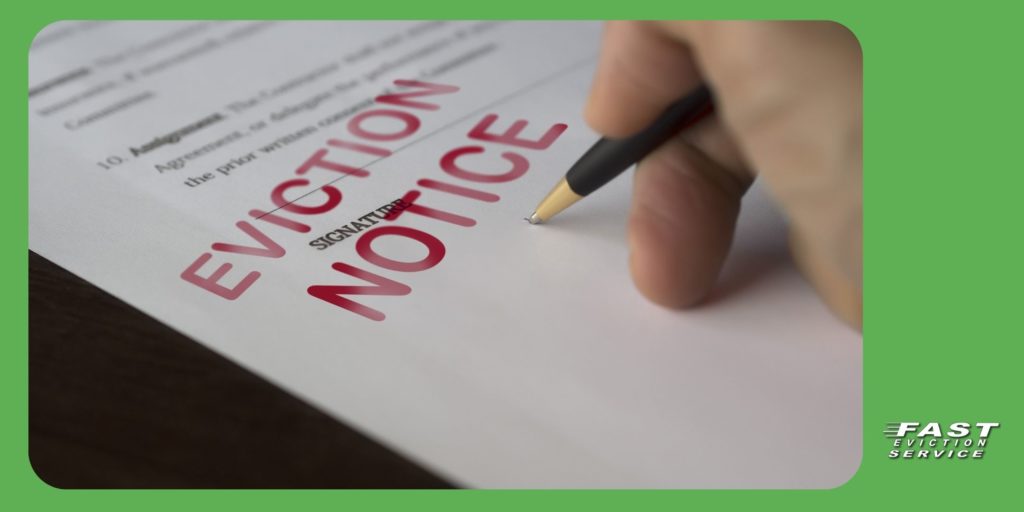Updated 10/5/24
Dealing with tenants who can’t pay the full rent on time can be a tricky situation. However, understanding how to handle partial rent payments can be the key to avoiding unnecessary eviction notices while maintaining a healthy landlord-tenant relationship. This article will walk you through best practices, legal considerations, and strategic tips for handling partial rent payments to keep your property business running smoothly.

Understanding Partial Rent Payments
Before we dive into strategies for managing partial rent payments, it’s essential to understand what they are. A partial rent payment is when a tenant pays only a portion of the agreed-upon rent instead of the full amount due. This situation may arise due to various reasons such as personal financial hardships, unexpected emergencies, or job loss. While it’s tempting to accept any amount of money offered, landlords need to consider the potential consequences of accepting partial payments.
The Legal Implications of Accepting Partial Rent Payments
One of the most critical factors to consider when accepting a partial rent payment is the legal impact. In many states, accepting a partial payment can void any previously issued eviction notices or may require you to restart the eviction process altogether. By taking even a small portion of the rent, you may be signaling to the courts that you have accepted the tenant’s effort to pay, thereby negating your right to continue with eviction proceedings for that particular month.
To avoid inadvertently waiving your rights, it’s vital to stay informed about local landlord-tenant laws. Consult with a real estate attorney or property management professional to better understand the legal boundaries in your jurisdiction. Additionally, be cautious when issuing receipts for partial payments. Clearly state that the amount paid is only a fraction of the rent due and that the balance is still owed.
Strategies for Handling Partial Rent Payments
Establish Clear Policies in the Lease Agreement
The first line of defense in managing partial rent payments is a solid lease agreement. As a landlord, you should explicitly outline your policy regarding partial payments in the lease. Clearly state whether you will accept or refuse partial rent payments and what the consequences will be for tenants who are unable to pay the full amount. Make sure your tenant fully understands this policy when signing the lease. This proactive approach minimizes confusion and reduces the likelihood of disputes later on.
By having a clear policy in place, tenants are more likely to understand the importance of paying the full rent on time, reducing instances of partial payments.
Use Written Agreements for Partial Payments
If you choose to accept partial rent payments, always create a written agreement that outlines the terms of acceptance. This agreement should specify the amount paid, the outstanding balance, and a deadline for when the remaining balance is due. Ensure that the agreement includes a clause stating that accepting a partial payment does not waive your right to pursue the full rent or initiate eviction if the remaining balance is not paid by the agreed-upon date.
This documentation will serve as a legal safeguard, protecting your rights as a landlord while providing tenants with clarity on their responsibilities.
Offer Payment Plans to Avoid Eviction
Sometimes, a tenant who makes a partial rent payment is not deliberately trying to shortchange you—they may simply be going through a tough financial patch. In such cases, offering a payment plan may be a mutually beneficial solution. Set up a formal payment plan agreement that allows the tenant to pay the outstanding rent over a period of time, such as several weeks or months.
A well-structured payment plan can prevent eviction while giving the tenant breathing room to recover financially. Be sure to include all the details of the payment plan in writing, and make it clear that failure to comply with the agreed-upon terms could result in further legal action, including eviction.
Avoiding Common Pitfalls with Partial Rent Payments
Don’t Rely on Verbal Agreements
One of the biggest mistakes landlords make is relying on verbal agreements when accepting partial rent payments. Verbal agreements can lead to misunderstandings and make it difficult to enforce the terms later if the tenant fails to follow through. Always put everything in writing to protect both you and the tenant. Written agreements are enforceable in court, while verbal promises are much harder to prove.
Avoid Habitual Partial Payments
Allowing a tenant to consistently make partial rent payments can set a dangerous precedent. If a tenant believes they can continually pay less than the full amount without consequence, they may take advantage of the situation. To avoid this, enforce strict guidelines around how often partial payments are acceptable. If a tenant continually struggles to meet rent obligations, it may be time to reconsider their tenancy.
Keep Records of All Transactions
Maintaining thorough records is crucial when handling partial rent payments. Make sure to document each payment, whether it’s partial or full, and issue receipts that clearly outline the amount paid and the remaining balance. Keeping accurate records will protect you legally and help resolve any future disputes with the tenant regarding payment history.
When Eviction is Inevitable
In some cases, despite your best efforts to accommodate the tenant, eviction may be the only option left. If a tenant fails to pay the remaining balance after a partial payment or repeatedly falls behind on rent, you may need to initiate eviction proceedings. While this is never an ideal outcome, it’s essential to protect your financial interests as a landlord.
Before moving forward with eviction, ensure that you’ve complied with all legal requirements, including providing proper notice to the tenant. Again, consult with a legal professional to avoid missteps that could delay the process.
Handling partial rent payments requires a careful balance of compassion and business acumen. While it’s important to help tenants through tough times, landlords must also protect their financial interests and maintain the integrity of the lease agreement. By setting clear policies, using written agreements, and maintaining accurate records, you can manage partial rent payments effectively and avoid unnecessary eviction notices. In the end, a well-documented and legally sound approach benefits both landlords and tenants, fostering positive relationships and reducing turnover.
By following these strategies, landlords can turn the challenge of partial rent payments into an opportunity for negotiation and resolution, without compromising their bottom line.


